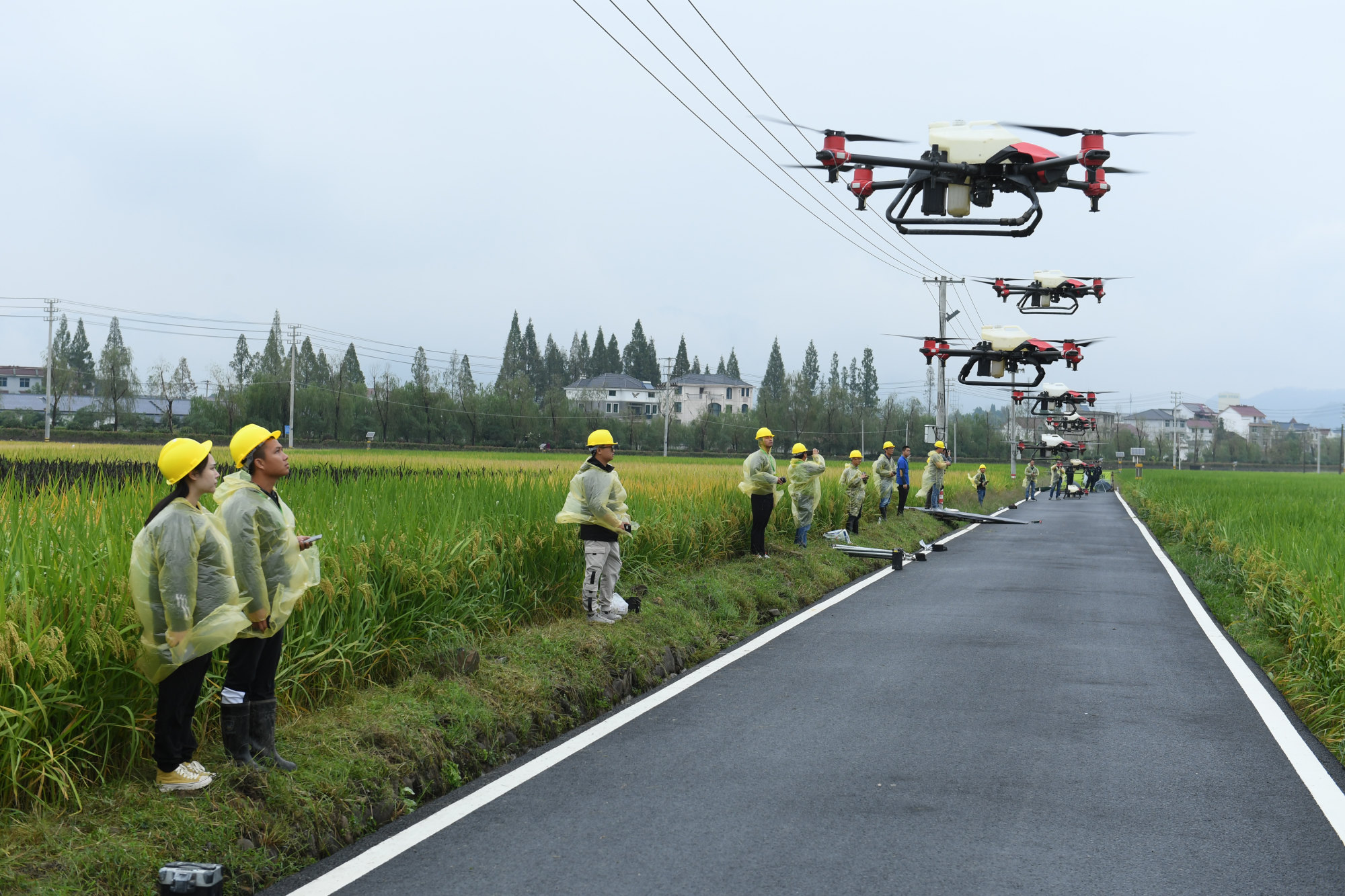
Chinese drone makers mum over fallout from Beijing’s export controls targeting military use of unmanned aerial vehicles
- Only Shenzhen-based DJI, which has denied providing drones for military use in Ukraine, commented publicly, saying it will ‘fully comply’ with the rules
- The government issued a new order on Monday requiring drone exporters to seek approval before shipping certain products and equipment overseas
Chinese drone makers have largely refrained from publicly commenting on the possible fallout from Beijing’s new export curbs on unmanned aerial vehicles (UAVs) with potential military applications, with only the world’s largest drone maker offering a curt statement.
Shenzhen-based DJI, which has repeatedly denied providing drones for military use in Ukraine, is the only major drone company in the country to comment on the export controls, saying it will “fully comply” with the rules on UAVs and related equipment.
The company is “evaluating the specific impact” of the new regulations, DJI said. The drone maker added that its products are for civilian use only, and that the company has never marketed or used them for combat use in any country. It has also required distributors and resellers to provide a written commitment to not sell DJI products to customers who plan to use or modify drones for combat purposes, according to the statement.
China drone curbs ‘may be signal to West it is neutral in Russia-Ukraine war’
DJI was caught up in controversy after its drones were spotted on the battlefield in Ukraine. The company suspended business activities in Russia and Ukraine starting in April 2022, one month after Russia launched its war against Ukraine.
When asked about the new rules, Nasdaq-listed Ehang, a Guangzhou-based firm that started as a consumer drone maker but now focuses on flying taxis, said they currently have no impact on operations. Its stock price in New York was down 0.6 per cent on Tuesday.
Other drone makers preferred to avoid the topic. A major Chinese agriculture drone maker said it is unwilling to comment on the record about the export restrictions because it does not want its name associated with the policy aimed at curbing military drone use.
An executive at another Chinese drone maker, who declined to be named, said the impact would be manageable, but the rules would create more complications for selling abroad, which may now involve more paperwork.
The new rules, introduced on Monday, came in the form of two new orders. The first requires Chinese drone exporters to seek approval before shipping certain products and key components overseas. The second puts the onus on drone makers to assess whether their products have the potential to be used for the “proliferation of weapons of mass destruction, terrorist activities or military purposes”.
The new rules, which add to existing drone export controls issued in 2015, are designed to curb the risk of some high-specification and high-performance civilian drones being converted to military use, the commerce ministry said in a statement on Monday. “As a major producer and exporter of drones, China has decided to moderately expand export controls on drones on the basis of full assessment and demonstration,” the ministry said.
While China’s drone makers are downplaying the potential impact, some industry insiders expressed concern about far-reaching implications for the civilian drone industry if Beijing chooses to strictly enforce the new restrictions.

“In theory, all drones could be used for certain military purposes,” a former hardware supplier to DJI said. “If reconnaissance is considered, then nearly all commercial drones fall under the rule.”
A drone capable of carrying a 1kg payload, for example, could be converted to carry enough explosives to kill people, said the supplier, who declined to be named because of the sensitivity of the topic.
China is the world’s leading supplier of drones. The country has about 15,000 companies in the industry, of which 1,300 are based in Shenzhen, with a combined annual output valued at 16 billion yuan (US$2.2 billion), according to Shenzhen Drone Association.



